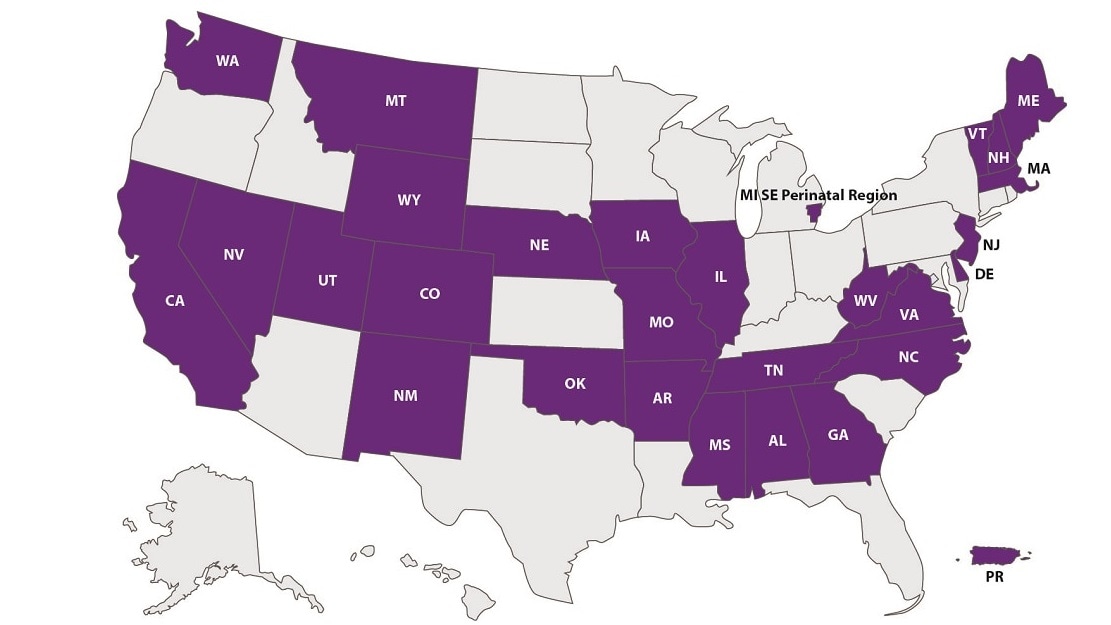What to know
As of November 2023, 27 states, 1 perinatal region, and 1 territory have successfully implemented CDC Levels of Care Assessment ToolSM (CDC LOCATeSM).

Success stories: Massachusetts
The rate of severe maternal morbidity in Massachusetts has increased over time, with notable racial and ethnic disparities. Levels of Maternal Care is one strategy to reduce morbidity. It helps ensure pregnant women have equitable access to delivery centers that appropriately address their level of risk. The Perinatal-Neonatal Quality Improvement Network of Massachusetts (PNQIN) formed a task force using CDC LOCATe. The goal was to understand available resources by hospital and region.
The Betsy Lehman Center for Patient Safety administered CDC LOCATe to the 40 hospitals providing obstetric services in Massachusetts. The assessment also included questions about hospital training and quality improvement practices relevant to health equity and patient safety. All 40 hospitals participated voluntarily.
As a result of their involvement with CDC LOCATe, each hospital received a report of their results. Hospitals were invited to discuss quality improvement opportunities offered by PNQIN. This included a discussion of discrepancies between hospital self-reported Level of Maternal Care and CDC LOCATe-assessed Level of Maternal Care. These efforts help optimize equitable risk-appropriate obstetric care for patients and families.
Success stories: Montana
Montana implemented CDC LOCATe to assess levels of maternal and neonatal care. Additionally, Montana sought to collect data about facility capacity and service delivery. The Montana Obstetrics and Maternal Support (MOMS) program was initiated by a grant awarded from the Health Resources and Services Administration.
Addressing challenges associated with rural obstetric care requires statewide coordination of perinatal care. MOMS facilitates maternal care quality improvement through the Montana Perinatal Quality Collaborative and the Alliance for Innovation in Maternal Health initiative.
MOMS also established Montana's Maternal Mortality Review Committee and implemented CDC LOCATe to identify areas for improvement. CDC LOCATe provides Montana's maternal health partners and facilities with information related to health care preparedness and risk-appropriate care. Montana added a module to the CDC LOCATe assessment to gather information on provider training, transport, medical products, and accessibility.
As a result of participating in CDC LOCATe, Montana launched an emergency obstetric services assessment. It assesses capacity and preparedness in critical access hospitals without an obstetric unit. Paired with CDC LOCATe, this assessment contributes to statewide conversations on perinatal regionalization. Moving forward, Montana will focus on linking CDC LOCATe data to other public health data sources. This will help identify opportunities for improving risk-appropriate care.
